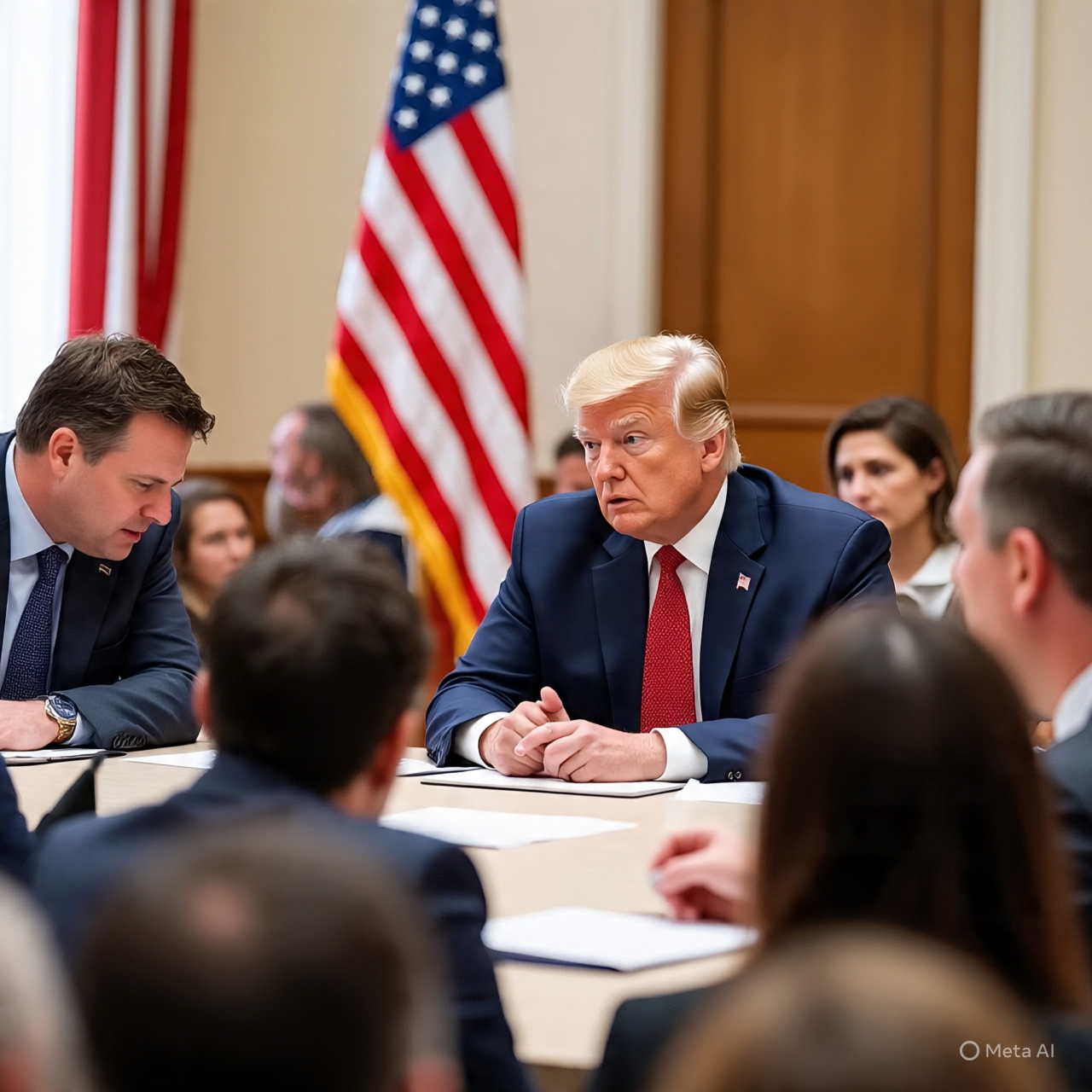FnF News
“Nine Years Later: The Trump-Russia Saga Refuses to Die”
By Khadija Khan
June 5, 2025
A Decade of Allegations, Obsessions, and Echoes
WASHINGTON, D.C. — June 5, 2025 — It’s been nine years since the term “Russia collusion” first hijacked headlines, courtrooms, Twitter threads, and cable news tickers. But in 2025, the obsession with Donald J. Trump and his alleged ties to Russia refuses to fade. In fact, it may be louder than ever — despite years of investigations, indictments, acquittals, and political fallout that have left the American public fatigued and deeply divided.
This week, the debate exploded again after Rep. Eliza Maxwell (D-NY) referenced “the unfinished business of the Trump-Russia nexus” in a fiery committee hearing, prompting instant backlash across the aisle.
“This is political necromancy,” snapped Rep. Jared Brooks (R-TX). “The Trump-Russia narrative is a rotting corpse, and Democrats keep resurrecting it to avoid talking about inflation, border failures, and the collapsing middle class.”
Yet despite the fatigue and fury, the Trump-Russia complex — part myth, part memory, part weapon — is still alive in the bloodstream of American politics.
The Origin: 2016’s Shadow Still Looms
It began in mid-2016, with hacks, leaks, and whispers of clandestine meetings. The resulting investigations — from the Mueller Report to multiple Senate intelligence hearings — consumed the Trump presidency and polarized the nation. Mueller found no criminal conspiracy, but the report also didn’t exonerate Trump, leading to a gray area ripe for political exploitation.
And in the nine years since, that gray zone has become a battlefield.
“The problem is, everyone projected their own version of the story onto Trump-Russia,” says historian Dr. Lena Rourke. “To his enemies, it was treason. To his supporters, a witch hunt. To the media? It was ratings.”
2025: Why It’s Back Now
What sparked the latest revival? A perfect storm of political timing, legal maneuvers, and a conveniently timed Russian cyberattack on NATO servers in Brussels.
Within hours, commentators on MSNBC and CNN began speculating whether Trump’s “shadow diplomacy” with Russia — including his recent private call with Vladimir Putin — had anything to do with Russia’s latest aggressive posturing.
“Trump has always been too cozy with strongmen,” said analyst Jenna Hollis. “We’re seeing the geopolitical cost of that now.”
The narrative was quickly picked up by late-night talk shows, Twitter (now called XNet), and Democratic fundraising campaigns. Hashtags like #KremlinConnection and #StillWithRussia began trending again.
But the backlash was just as swift.
The Right: “Enough of the Ghost Stories”
Conservative media, led by hosts like Bryan Riddick on The Patriot Network, slammed the renewed coverage as “intellectual vandalism” and accused Democrats of “rewriting a hoax as gospel.”
“Nine years,” Riddick said. “Nine years of lies, leaks, and lunacy. And they’re still stuck in 2016 because they’re terrified of 2025.”
Riddick wasn’t alone. House Republicans immediately filed a resolution to bar the use of federal funds for any future Trump-Russia investigations unless “new, hard evidence” is presented.
Even some centrist Democrats admitted the timing was questionable.
“It feels like déjà vu,” said former DNC strategist Miles Boren. “We need to move forward. Not recycle narratives that the public has moved on from.”
But the Public Hasn’t Entirely Moved On
Polls from Gallup and Ipsos this week reveal that 38% of Americans still believe Trump “likely coordinated with Russia in some form,” while 44% say the entire saga was overblown from the start. The rest — a tired and wary 18% — just want everyone to shut up about it.
And yet, the narrative still shapes elections, fundraising, and even foreign relations.
“There’s an industry built around Trump-Russia,” said political author Rachel Kaye. “Think tanks, books, movies, podcasts, super PACs — all fueled by the ghost of a scandal that never fully materialized.”
Putin’s Shadow: Fuel or Fiction?
The recent Ukrainian drone blitz, Russia’s vow of retaliation, and Trump’s secretive phone call with Putin have reignited suspicions — even among former skeptics.
“Why does Putin always resurface in Trump’s orbit at the worst possible moment?” asked retired CIA operative Tom Kendricks. “Coincidence only goes so far.”
In Russia, state media is enjoying the moment. RT aired a gleeful segment mocking U.S. politicians for “never escaping their internal witch hunts.” Russian analysts suggested the revived Trump-Russia discourse only weakens American credibility on the global stage.
“The U.S. is a house divided and haunted by its own fictions,” said Kremlin spokesman Mikhail Sudakov.
The Legal Layer: Still Not Over
Even as Congress rolls its eyes, several minor legal inquiries tied to past Trump-Russia contacts are still open in state courts, including:
- A data-sharing probe in New York involving 2016 digital campaign consultants.
- A sealed hearing in Delaware related to alleged foreign bank channels tied to early Trump associates.
- A dormant but technically active subpoena in Virginia’s Eastern District.
While none are expected to explode into headline-grabbing trials, their mere existence fuels speculation — and, for Trump’s enemies, hope.
Conclusion: A Political Zombie That Won’t Die
Nine years later, the Trump-Russia affair exists in a strange limbo: part memory, part myth, part metaphor.
To his supporters, it’s a false scandal weaponized against a president who refused to play by Washington’s rules.
To his critics, it’s an unfinished chapter in the story of foreign interference and democratic fragility.
And to the rest of America, it’s just noise — yet another reason to log off.
But in 2025, as Trump eyes a return to power and global tensions spiral once again toward Russia, it’s clear the ghost of 2016 hasn’t been laid to rest.
It’s still roaming the halls of Congress. Still infecting newsrooms.
And for better or worse — it’s still shaping America.

